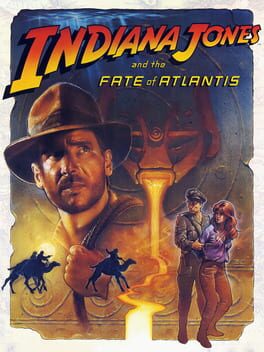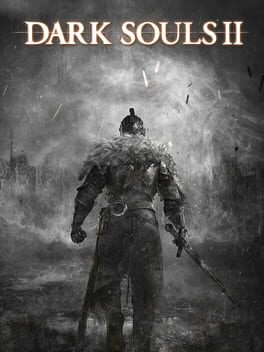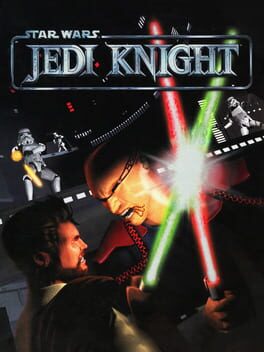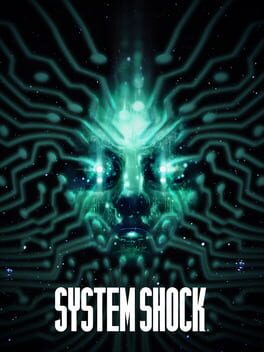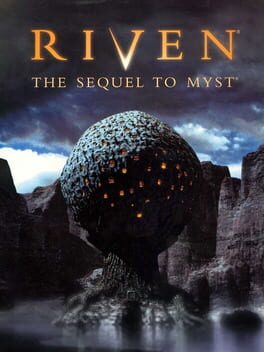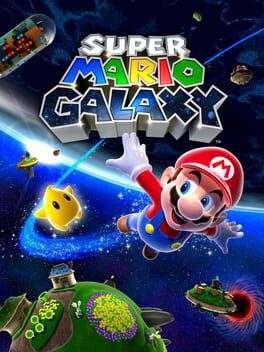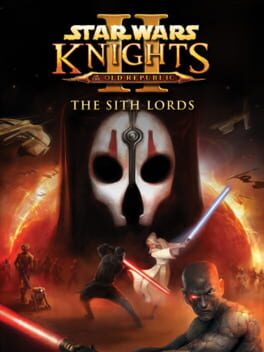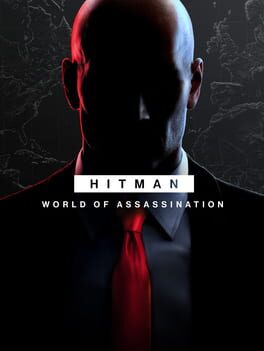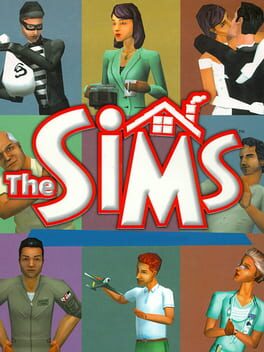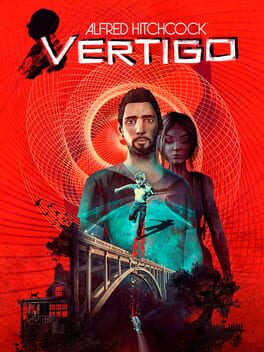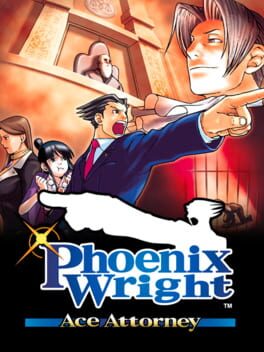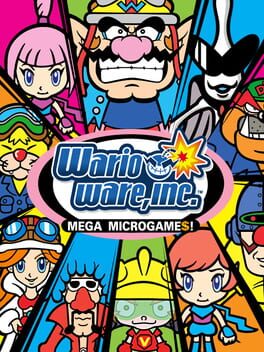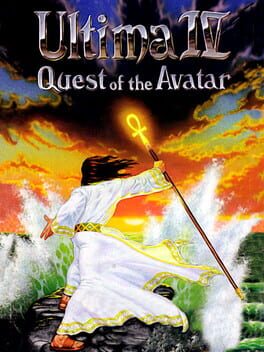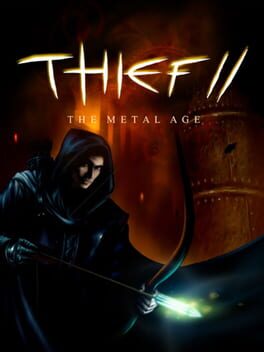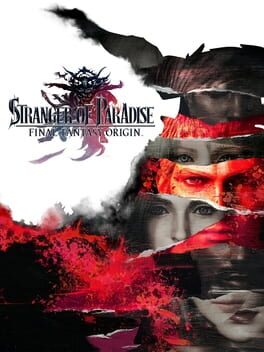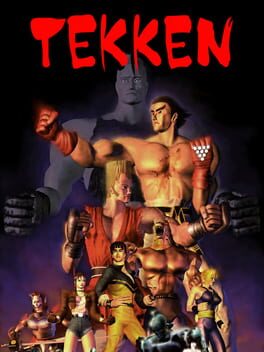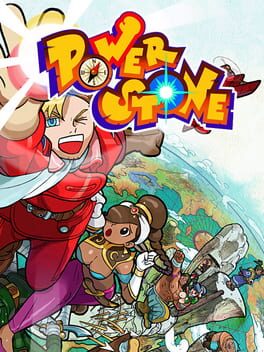shatterball
14 reviews liked by shatterball
Dark Souls II
2014
I've had a dream recently. I was driving around my neighborhood, but it was different. Vastly different. I wasn't looking at houses, I was looking at abandoned buildings. The more I explored the neighborhood, the more decrepit it became: Houses became remains of a destroyed, rotting victorian era building; establishments that were nothing but wood and the occasional gothic imagery; memories that never were, would manifest in the form of ones you would never know its full history.
Dark Souls II is exactly that dream.
Drangleic is a world that once was. You just happen to explore its end. People fight for scraps of its memories, as if there's something to salvage from what calamity has already claimed. A demented kingdom is all you will find. I fear the concept of dementia, but I'm also morbidly curious by it, much so the concept of death itself. Exploring it for the first time, I've never really realized how much these morbid curiosities are why I've enjoyed Drangleic as much as I have. I just thought it was a cool world. It's crazy how stories can be told mainly through visuals and you could totally ignore the meat of it and still get the message.
Dark Souls, as a series, explores death in different ways. Where the first one's thematic is death and how we cling on to life (perhaps a bit too much), Dark Souls 2 gives us death, and how it will eventually make us all forgotten. To me, death only comes once you're no longer remembered. In other words, you cling on to those memories, no matter how much they're degrading.
Oh, right, this is a video game. Oops.
Dark Souls 2 is also my first souls-like game. It's a game that formed me as a souls-like enjoyer. I'll always tell people to start with 2 with a win-win situation of "If you liked the others better, then at least you started with the worst and built it up. If you loved this game from the get-go, then you got a new favorite in your hands". Balance is weird in this game: it throws many bones at the player. It's much easier to get a hang of the game and breeze through it, unlike 1 and 3, and Elden Ring. But that's why it's so much fun. I get to play without stressing too much, I allow myself to get hit more often due to the existence of lifegems, and so on. It feels so much more dynamic and I got to play this game multiple times, with different play styles each time.
I've never played the Scholar of the First Sin edition, and from what I've heard, it's even more of a "gank squad central" game than before. I never had an issue with enemy placement in the original, but if it's accentuated in the new version, then I'd hate to try it out, lest it ruins my perception of this game being the best one of the series.
I'm not here to start wars about which Dark Souls is better, but I will say this: Don't trust a person who will go out of their way to tell you unprompted that Dark Souls 1 is the best one. They probably only play it for the PvP.
Dark Souls II is exactly that dream.
Drangleic is a world that once was. You just happen to explore its end. People fight for scraps of its memories, as if there's something to salvage from what calamity has already claimed. A demented kingdom is all you will find. I fear the concept of dementia, but I'm also morbidly curious by it, much so the concept of death itself. Exploring it for the first time, I've never really realized how much these morbid curiosities are why I've enjoyed Drangleic as much as I have. I just thought it was a cool world. It's crazy how stories can be told mainly through visuals and you could totally ignore the meat of it and still get the message.
Dark Souls, as a series, explores death in different ways. Where the first one's thematic is death and how we cling on to life (perhaps a bit too much), Dark Souls 2 gives us death, and how it will eventually make us all forgotten. To me, death only comes once you're no longer remembered. In other words, you cling on to those memories, no matter how much they're degrading.
Oh, right, this is a video game. Oops.
Dark Souls 2 is also my first souls-like game. It's a game that formed me as a souls-like enjoyer. I'll always tell people to start with 2 with a win-win situation of "If you liked the others better, then at least you started with the worst and built it up. If you loved this game from the get-go, then you got a new favorite in your hands". Balance is weird in this game: it throws many bones at the player. It's much easier to get a hang of the game and breeze through it, unlike 1 and 3, and Elden Ring. But that's why it's so much fun. I get to play without stressing too much, I allow myself to get hit more often due to the existence of lifegems, and so on. It feels so much more dynamic and I got to play this game multiple times, with different play styles each time.
I've never played the Scholar of the First Sin edition, and from what I've heard, it's even more of a "gank squad central" game than before. I never had an issue with enemy placement in the original, but if it's accentuated in the new version, then I'd hate to try it out, lest it ruins my perception of this game being the best one of the series.
I'm not here to start wars about which Dark Souls is better, but I will say this: Don't trust a person who will go out of their way to tell you unprompted that Dark Souls 1 is the best one. They probably only play it for the PvP.
really makes you feel like a jedi knight because your bodycount ends up being comparable to Duke Nukem even if you dont go dark side (huhuh What An Mess). also does more interesting stuff in regards to "ThreeDee Level Design" and traversal through said levels than whatever your favorite babyproofed bingbingwahoo title from the past 25+ years happens to be, hence why the gaming essay writing elite subscribed to GameMaker's Toolkit, whose ideal of an involving action-adventure is likely Wind Waker rather than Hexen, will tell you it's confusing+Stupid&BAD (quite unlike Them). Kyle Katarn can jump like Goku and straferun as fast as the earlier mentioned action man powered up by steroids (far too powerful to be canon, just like Kotor2!!!!) which is why You should treat "independent thinkers" who put le biggest badass doomguy on a pedestal with the disdain&disrespect they deserve.
System Shock
2023
Peter: But since we're all gonna die, there's one more secret I feel I have to share with you. I did not care for Riven: The Sequel to Myst.
Lois: What?
Peter: Did not care for Riven.
Chris: How can you even say that, dad?
Peter: Didn't like- didn't like it.
Lois: Peter, it's so good! It- It's like the perfect game!
Peter: I- This is what everyone always says. Whenever they say...
Chris: Gehn, Catherine, I mean, you never see, Atrus!
Peter: Listen, I know, I- Fine. Fine. Fine character, did not like the game.
Brian: Why not?
Peter: Did not...couldn't get into it.
Lois: Explain yourself. What didn't you like about it?
Peter: It's too hard, Lois.
Lois: What?
Peter: It's too hard.
Lois: And you liked Myst?
Chris: Because it has good puzzles, it's allowed to be hard!
Peter: It takes forever getting anywhere; you spend like, you spend like six and a half hours riding minecarts. You can't try anything new without wasting a ton of time watching bridges lower or doors open... You know, I gave, I looked up the solution to both the animal stone puzzle and the marble grid puzzle.
Chris: You looked up the solution?!
Stewie: How can you say you don't like it if you haven't even played it properly?
Lois: I agree with Stewie. It's not really fair.
Chris: It's outrageous.
Peter: I spent two hours at the start of the game, marooned on Dome island with no clue where the hell I could go or what I could even do. I wrote down two pages of notes-
Lois: Yeah, that's what makes Riven good. I loved jotting down notes.
Peter: I eventually got irritated enough that I googled a hint guide. I had missed a lever at the side of one of the screens. Missing a lever is not a fun or interesting puzzle. It's an "everything is brown or gray" problem.
Lois: You know what, Peter,
Chris: You're supposed to use your eyes!
Lois: Riven is a masterclass of subtlety and immersion; it's something you don't understand.
Peter: I loved the part where you figured out the numbering system. That is my answer to that statement.
Lois: Exactly.
Peter: Well, there you go.
Lois: Whatever.
Chris: I liked that part too.
Lois: What?
Peter: Did not care for Riven.
Chris: How can you even say that, dad?
Peter: Didn't like- didn't like it.
Lois: Peter, it's so good! It- It's like the perfect game!
Peter: I- This is what everyone always says. Whenever they say...
Chris: Gehn, Catherine, I mean, you never see, Atrus!
Peter: Listen, I know, I- Fine. Fine. Fine character, did not like the game.
Brian: Why not?
Peter: Did not...couldn't get into it.
Lois: Explain yourself. What didn't you like about it?
Peter: It's too hard, Lois.
Lois: What?
Peter: It's too hard.
Lois: And you liked Myst?
Chris: Because it has good puzzles, it's allowed to be hard!
Peter: It takes forever getting anywhere; you spend like, you spend like six and a half hours riding minecarts. You can't try anything new without wasting a ton of time watching bridges lower or doors open... You know, I gave, I looked up the solution to both the animal stone puzzle and the marble grid puzzle.
Chris: You looked up the solution?!
Stewie: How can you say you don't like it if you haven't even played it properly?
Lois: I agree with Stewie. It's not really fair.
Chris: It's outrageous.
Peter: I spent two hours at the start of the game, marooned on Dome island with no clue where the hell I could go or what I could even do. I wrote down two pages of notes-
Lois: Yeah, that's what makes Riven good. I loved jotting down notes.
Peter: I eventually got irritated enough that I googled a hint guide. I had missed a lever at the side of one of the screens. Missing a lever is not a fun or interesting puzzle. It's an "everything is brown or gray" problem.
Lois: You know what, Peter,
Chris: You're supposed to use your eyes!
Lois: Riven is a masterclass of subtlety and immersion; it's something you don't understand.
Peter: I loved the part where you figured out the numbering system. That is my answer to that statement.
Lois: Exactly.
Peter: Well, there you go.
Lois: Whatever.
Chris: I liked that part too.
Super Mario Galaxy
2007
The true reveal of Metal Gear Solid 2 is not that we play as Raiden instead of Solid Snake - it's that the antagonist of the game does not exist. It's pulling back the curtain to find that the man behind it died a century ago. The most powerful nation on Earth is essentially an algorithm with a mind of its own, akin to a runaway train that everyone "in charge" pretends they are responsible for. There is no individual you get to blame. Not the politicians, not the CEOs of major corporations. Not even the current or former presidents of the United States have any idea of what's really going on. The algorithm will replace these people the second they stop being useful. In my opinion it's a much better conception of "the system" than what you see in most conspiracy fiction: a small, shadowy cabal of people pulling the strings from behind the scenes. The reality is that all of the powerful people we blame are just the ones who managed to latch on to the algorithm of capitalism and milk it for all they can. There is no grand design, nobody is in control, everyone responsible for setting this system into motion is long dead. Which is why Otacon says the Patriots "have been dead for 100 years".
Every choice you (and Raiden) make perpetuates this status quo, and every radical political cause (like Snake and Otacon's 'Philanthropy') is effortlessly co-opted by it. MGS2 conveys this idea in a way that only a video game could: By playing as Raiden, you are forced to directly confront the futility of any resistance. You can approach MGS2 in a million different ways with an expansive arsenal of tools, getting no kills or alerts and discovering every secret in the Big Shell, or do the exact opposite. But the end result is always the same: You kill Solidus, the only threat to the Patriots, after they explicitly tell you it's exactly what they want. If you opt out entirely and "turn the game console off" you're still doing something you were ordered to do. Even if you choose not to play, you lose to the Patriots. MGS2 places you in the position of the post-information age, digital subject: Imbued with detailed knowledge of every single way you are being oppressed and exploited, you still choose to follow orders. You are so overwhelmed by information, some true, some false, that is causes a kind of exasperated compliance.
This is simultaneously a commentary on the nature of video game stories as an immutable, pre-programmed series of events not as different from film narratives as we like to think; Any "choice" is always an illusion, whether it's in Metal Gear Solid or a Telltale game. Any game that sets out to fulfill the concept of "player freedom" in its story will always fail. Video games stories are (at their best) about interactivity, not choice. They let you play out a pre-ordained role and do some improvisation, not write the story. Kojima understands this, and it's why he borrows so much from film. It's also why the criticism that his games are too much like movies is kind of pointless; he's just recognizing the inherent similarities of the two mediums.
On a less meta level, this lack of free will in MGS2 underscores the reality that capitalism, American empire, the very norms and values of American society, whatever the antagonist of the game is - cannot be destroyed from within. It is a system that has achieved self-awareness. Any possible attempt to destroy it has already been anticipated with an infinite number of contingencies. Emma Emmerich gave her life to destroy the GW AI and it was just replaced with a backup. The battle has already been lost, and it was decided by a microscopic processor in a fraction of a second. Solidus (a perfect stand-in for the kind of right-wing populist we wouldn't see for awhile in 2001) was the only person in power trying to oppose the Patriots, but his fatal mistake was believing that the Patriots were essentially a deep state globalist cabal, rather than the nigh omnipresent force they really are (they aren't really a "they", but an "it"). Like Snake said, "the Patriots are a kind of ongoing fiction". But even the legendary Solid Snake, the archetypal hero who opposes the system with clear-eyed determination, is completely dumbfounded after the credits roll.
And that's because this enemy is simply beyond the abilities of one man, even if that man is a Snake. It can just create its own soldier to surpass Solid(us) Snake and even mass-produce them, and your actions throughout the game prove it. No tactical espionage action can defeat what is essentially an idea - one that has infiltrated the furthest depths of the human soul. The only hope lies on a society-wide level: An alternative has to be built by everyone from the ground up, through finding what is true and meaningful in life and passing it on to the next generation. Slowly, generation by generation, an alternative capable of opposing the great algorithm can be built. And it has to be one that people can have faith in, in a spiritual sense.
But the encroachment of the internet into our lives is making this less and less feasible. By replacing the traditional nuclear-armed metal gear with Arsenal Gear, an AI that controls the internet, Kojima is essentially framing the internet itself as a threat equal to or greater than that of nuclear weapons. It is an instrument of human separation much more powerful than the splitting of an atom. The quote at the beginning of Raiden's chapter tying computers and nuclear weapons together bolsters this interpretation.
The digital age has turned human life into a scrambled mess that is impossible to parse. We create entirely idiosyncratic, patchwork realities for ourselves by finding various "truths" through our own individual exploration of the internet and jury-rigging them together. We relate to each other less and less, and mental illness is widespread. This overload of information makes us increasingly neurotic, isolated, and unable to determine truth from fiction. The collective human mind is being broken (or at least pounded into a new shape) against the collective neuroses of the internet, and nobody knows what to do about it. We're all alone right now, each of us left with the isolating task of finding our own truth amidst the cacophony. Even the algorithm fears for our future, yet it's still the only entity with a solution: Censorship. Make the noise stop. Honestly, has anyone thought of a better idea?
Every choice you (and Raiden) make perpetuates this status quo, and every radical political cause (like Snake and Otacon's 'Philanthropy') is effortlessly co-opted by it. MGS2 conveys this idea in a way that only a video game could: By playing as Raiden, you are forced to directly confront the futility of any resistance. You can approach MGS2 in a million different ways with an expansive arsenal of tools, getting no kills or alerts and discovering every secret in the Big Shell, or do the exact opposite. But the end result is always the same: You kill Solidus, the only threat to the Patriots, after they explicitly tell you it's exactly what they want. If you opt out entirely and "turn the game console off" you're still doing something you were ordered to do. Even if you choose not to play, you lose to the Patriots. MGS2 places you in the position of the post-information age, digital subject: Imbued with detailed knowledge of every single way you are being oppressed and exploited, you still choose to follow orders. You are so overwhelmed by information, some true, some false, that is causes a kind of exasperated compliance.
This is simultaneously a commentary on the nature of video game stories as an immutable, pre-programmed series of events not as different from film narratives as we like to think; Any "choice" is always an illusion, whether it's in Metal Gear Solid or a Telltale game. Any game that sets out to fulfill the concept of "player freedom" in its story will always fail. Video games stories are (at their best) about interactivity, not choice. They let you play out a pre-ordained role and do some improvisation, not write the story. Kojima understands this, and it's why he borrows so much from film. It's also why the criticism that his games are too much like movies is kind of pointless; he's just recognizing the inherent similarities of the two mediums.
On a less meta level, this lack of free will in MGS2 underscores the reality that capitalism, American empire, the very norms and values of American society, whatever the antagonist of the game is - cannot be destroyed from within. It is a system that has achieved self-awareness. Any possible attempt to destroy it has already been anticipated with an infinite number of contingencies. Emma Emmerich gave her life to destroy the GW AI and it was just replaced with a backup. The battle has already been lost, and it was decided by a microscopic processor in a fraction of a second. Solidus (a perfect stand-in for the kind of right-wing populist we wouldn't see for awhile in 2001) was the only person in power trying to oppose the Patriots, but his fatal mistake was believing that the Patriots were essentially a deep state globalist cabal, rather than the nigh omnipresent force they really are (they aren't really a "they", but an "it"). Like Snake said, "the Patriots are a kind of ongoing fiction". But even the legendary Solid Snake, the archetypal hero who opposes the system with clear-eyed determination, is completely dumbfounded after the credits roll.
And that's because this enemy is simply beyond the abilities of one man, even if that man is a Snake. It can just create its own soldier to surpass Solid(us) Snake and even mass-produce them, and your actions throughout the game prove it. No tactical espionage action can defeat what is essentially an idea - one that has infiltrated the furthest depths of the human soul. The only hope lies on a society-wide level: An alternative has to be built by everyone from the ground up, through finding what is true and meaningful in life and passing it on to the next generation. Slowly, generation by generation, an alternative capable of opposing the great algorithm can be built. And it has to be one that people can have faith in, in a spiritual sense.
But the encroachment of the internet into our lives is making this less and less feasible. By replacing the traditional nuclear-armed metal gear with Arsenal Gear, an AI that controls the internet, Kojima is essentially framing the internet itself as a threat equal to or greater than that of nuclear weapons. It is an instrument of human separation much more powerful than the splitting of an atom. The quote at the beginning of Raiden's chapter tying computers and nuclear weapons together bolsters this interpretation.
The digital age has turned human life into a scrambled mess that is impossible to parse. We create entirely idiosyncratic, patchwork realities for ourselves by finding various "truths" through our own individual exploration of the internet and jury-rigging them together. We relate to each other less and less, and mental illness is widespread. This overload of information makes us increasingly neurotic, isolated, and unable to determine truth from fiction. The collective human mind is being broken (or at least pounded into a new shape) against the collective neuroses of the internet, and nobody knows what to do about it. We're all alone right now, each of us left with the isolating task of finding our own truth amidst the cacophony. Even the algorithm fears for our future, yet it's still the only entity with a solution: Censorship. Make the noise stop. Honestly, has anyone thought of a better idea?
With the Phantom Pain, Kojima avoids the kind of spectacular descent into villainy that the fans wanted and the trailers promised. Instead he gives us the Sopranos season 6 of Metal Gear (but instead of a depressed mobster, we play as a depressed war criminal). Maybe that sounds like one of those hack game journalist "the dark souls of x" comparisons but it's true. The best case scenario for all of our favorite characters at this point is a swift death.
Spoilers below.
After losing everything in9/11 Ground Zeroes, having his mind and body shattered, Snake just... gets what's left of the gang back together, rebuilds his army, and tries the exact same shit again. Only now, it is completely devoid of purpose; The revolutionary anti-imperialist cause of the 70's is all but forgotten. There's a sinking feeling of dread as the camera pans to "our new Mother Base" in the helicopter after rescuing Kaz; an undeniable sense of this being a pointless, doomed effort. But since being a soldier is the only thing these people know how to do, they are stuck repeating the cycle. They're just going through the motions at this point; You really get a sense of that as the once charismatic and driven Big Boss is rendered a mute with a permanent thousand-yard stare who just does whatever Kaz and Ocelot tell him. When he's at the base between these missions he just stares at nothing and vapes for five hours straight. Far from the badass antihero that people expected from trailers. Venom Snake is actually kind of a directionless loser, which makes him just as good of a player stand-in as Raiden.
And the missions in this game, while incredibly fun and well-made, really beg the age-old American question "What are we even doing in Afghanistan?". The plot feels totally incomprehensible at times; you spend the whole game going after random acronym organizations, shell companies, and mercenary groups with some vague connection toBin Laden Skullface and al-Qaeda the American deep-state/Cipher. But every single character is lying and basically, everyone is Cipher. I had to repeat mission briefings multiple times at certain points to figure out what the hell was going on, and I still really don't. You could say that's just bad writing, but it works for what the game is trying to do, which is to make you feel like someone with a severe head injury. You're not supposed to understand this convoluted imperial entanglement - no one can. Especially not someone as fucked up as Snake.
And like Snake, the returning characters from Peace Walker are reduced to these broken versions of themselves. The only person who seems to be doing well is Ocelot, who has really come into his own as the sort dead-eyed psychopath that thrives in this kind of environment. Honestly? Good for him. Kaz on the other hand is a crippled, traumatized husk driven by revenge which is in turn driven by his own guilty conscience, and Huey has become a delusional, pathological liar focused solely on self-preservation. The few unnamed soldiers who survived9/11 Ground Zeroes are literally running around as raving lunatics in the wilderness. All of these people were supposed to die a decade ago, and instead they linger on as hollow men. Even the metal gear Snake fights is broken - it literally doesn't work without someone's magical powers. It's just this technological abomination created by a madman. When it tries to chase Snake it gets stuck in rocks because its sheer size is self-defeating, and Snake easily sneaks away. Probably the most obvious meta joke in the game (watch the last couple minutes of the launch trailer and tell me the game isn't making fun of itself). These Metal Gear (Solid)s aren't what they used to be. I mean come on, Metal Gear Rex roared like a T-Rex; Metal Gear Sahelanthropus... makes monkey noises.
Even Skullface, who was built up in trailers and in Ground Zeroes as this terrifying villain, turns out to be just a sad joke like everyone else. His plan is the most nonsensical, harebrained shit ever explained by a villain in any Metal Gear game. He spent a decade practicing a 10 minute theatrical monologue about why he has to eradicate the English language and give everybody nuclear weapons to unite the world. It makes absolutely no sense, it's a parody of Metal Gear villains, which were already parodies of 80's movie villains. While Skullface is performing his monologue in the jeep (to the wrong person), Venom just hits him with that fluoride stare and loops through a 20 second idle animation. Then Sins of the Father just... starts playing as they sit across from each other in complete silence and avoid eye contact. It's one of the funniest scenes in the entire series, mistaken by many fans as simply botched and awkward on accident (rather than on purpose, which it was). And if that wasn't obvious enough, Skullface's defeat is just straight up slapstick comedy; he gets crushed by his own non-functional Metal Gear in the middle of another absurd speech. Genuine comedy gold.
I think a lot of people overlook the humor in this game. It's a lot more muted and sad than in the rest of the series, but it's smarter here than in any other entry. Miller's "why are we still here" speech is MEANT TO BE FUNNY AND OVERLY MELODRAMATIC, as well as depressing and hard to watch. The way it ends, with that uncomfortable silence before he just... awkwardly sits back down? That was on purpose. The tone is that this has all become a very pathetic (and funny) spectacle at this point. Kojima's famously asinine dialogue becomes something really transcendent here; each hollow, ham-fisted statement really drives home the fact that everyone is just making this shit up as they go along now, trying to weave some bullshit heroic narrative out of a long series of L's. Kojima is telling us: "This is you dude. This is the American Empire. Your War on Terror is as darkly funny as it is monstrous." MGSV isn't the self-serious death march the trailers painted it as.
The way V's cutscenes are shot adds to these moments too. The shaky, handheld camera builds documentarian realism and a sense of witnessing real atrocities in more high-stakes scenes, but can also lend a comedic awkwardness to these exchanges between characters. I've seen someone compare it to The Office as a criticism but I think that's a feature and not a bug, as strange as it sounds. Somehow, it just works so well for the tonal balancing act this game maintains. But what really elevates V's cinematography thematically is its use of continuous shots. One-takes are often criticized as being essentially a gimmick, style over substance. But in Metal Gear Solid, a series defined by the juxtaposition between hard military realism and over the top fantasy? It's pure genius. Having all of this insane Kojima bullshit captured in documentary style is so fitting for this series. Perfectly hyperreal.
Speaking of hyperreal, let's talk about Quiet. I've thought a lot about whether her portrayal plays into Kojima's contempt for the audience (and the Metal Gear series itself for that matter) or if it's just a part of the game that didn't land. I was inspired by this article to conclude the former. In classic Metal Gear fashion, Quiet's characterization is ridiculous and offensive, but ends up transcending its low-brow trappings and having an emotional payoff - all while playing into a greater meta-narrative. And if you don't like that method of storytelling, then you sure picked the wrong media franchise. That scene of her speaking for the first time to guide the helicopter through the sandstorm is genuinely great. It perfectly encapsulates Kojima's ability to make something ridiculous, cheesy, and melodramatic - but still deeply affecting and with a lot of heart.
But let's not get ahead of ourselves; Quiet is absolutely a biting self-parody of Kojima's own portrayal of women throughout his series and in the wider industry. It's Kojima saying "Is this what you like, you sick fucks?" or possibly a case of introspection on his part ("Oh God, is this what I like?"). She has some hastily made up bullshit explaining why she wears no clothes, she is literally incapable of speaking for herself, and she undergoes gratuitous violence and imprisonment. Kojima obviously knows how ridiculous this is; he's seen basically every American movie, he knows this isn't how you're supposed to respectfully portray women. No, Quiet's portrayal is purposefully exploitative. Her objectification starts out fairly straightforward, but it becomes more and more disturbing for the player to partake in as the game goes on, in order to heighten the dark absurdity of all of this (particularly in Chapter 2, which is where everything in the game falls apart, on purpose). The point of Quiet's character, and the whole game really, is to give players exactly what they want in the most contemptuous way possible. To make you "feel ashamed of your words and deeds", you could even say. MGSV is about getting exactly what you want (another MGS game, endless content, revenge on Skullface, a sniper gf) and resenting it.
To build on MGSV's portrayal of women though, I think it's important that Paz takes on the role that she does in this game. She makes an initially very confusing reappearance - that first moment when you see her is genuinely unnerving, as if even the strange, fucked up Metal Gear reality we have become accustomed to can't explain what we're seeing. Out of all the unrealistic fantasy bullshit we've seen in this series, a series where it feels like anything goes and there are no rules or laws of physics, this is the first moment where I went "Wait, what? How?" But as we find at the end of "Paz's" side story, this is all just a projection of Snake's fragmented psyche. It's incredible in the way it makes you question what's real and what isn't, while simultaneously using Paz as a proxy to just straight up diagnose Snake's own mental disorders. But it's tucked away where most probably never saw it - like a hidden repressed memory somewhere in Snake's mind.
It perfectly conveys his nostalgia for a time that was never even good, as well as his crushing guilt and helplessness over the death of Paz. It's genuinely moving. That last tape of hers is something right out of Silent Hill 2, and it adds such depth to Snake as this miserable person that you should absolutely not want to be. For Snake, women really are just these fixtures of loss, shame, and regret - feelings that no doubt originate from the killing of his mother figure, The Boss. And despite all of the talk about getting revenge and taking down Cipher, the only time we ever see Snake get animated in this game is in his scenes with Paz. Snake's desire for redemption, his insistence on nuclear disarmament that feels strangely out of place, and his statement at the start of the game that he's "already a demon"? It's all about Paz, man.
One thing fans really disliked about Snake's portrayal though is that he never really seems to become the demon we knew him as in the early games. We never get to see The Exact Moment Walt Became Heisenberg. Quite the opposite; his intentions appear to remain heroic all the way to the end. The only scene where Snake approaches the kind of evil fans wanted to see is when Snake appears to murder the children in the mines but ends up saving them instead. In trailers this was depicted as if Snake actually goes through with the murder; to me, this is the smoking gun of another Kojima bait-and-switch. Fans wanted a game full of shocking, flashy acts of villainy on the part of Snake, and Kojima deliberately lead them on in trailers (just like in MGS2) but denied them of it in the final game. What did fans get instead? Spreadsheets.
Don't miss the forest for the trees; Snake is absolutely responsible for unimaginable atrocities during the events of MGSV. But instead of sensationalist images of man's inhumanity to man, Kojima shows us the banal cruelty of what it really means to be at the top of the war machine: You're just... on the computer, like everyone else. And everything you're doing is represented through so many layers of abstraction that it is impossible to understand the consequences. This ties directly into the themes of Metal Gear Solid 2 as well; by issuing your orders via this computer interface, you are even further removed from what is happening in reality. You just do a cursory cost-benefit analysis before sending the next death squad to do god knows what in some African or South American country you don't even know the name of.
And when a disease outbreak hits Mother Base, Snake's iDroid computer makes it easy for him to commit ethnic cleansing, sentencing scores of people to imprisonment and death for the language they speak. It isn't until all of the digital artifice is stripped away, and Venom is forced to enter the quarantine zone and personally slaughter his own men, that he has any crisis of conscience (and you actually lose some of your best men, because Kojima never fails to give the story actual weight via game mechanics). And you can say "Venom didn't want to do it, he had no choice." But that's exactly the point. If the Metal Gear Solid series is about one thing, it's about individual will being crushed under the weight of systems and institutions that have become organisms in and of themselves.
It doesn't matter how much Venom yearns for redemption. It doesn't even matter if he's in charge of Diamond Dogs. The system of global private warfare that Big Boss and friends established has taken on a life of its own, just like the Patriots of MGS2. His own intentions are irrelevant. If this system demands he kill his own men, he will do it. If this system demands that Raiden later kill Solidus, he too will do it. All actions within the system, regardless of intent, perpetuate the cycle of violence, war, and profit. Even if Venom disarms all of the nukes and brings about the Peace Day that never came for Paz, it just sets up the nuke free world that we hear about Big Boss exploiting in the intro to Metal Gear 2.
That's why everything in MGSV takes on such a hilariously pathetic flavor. Nobody, not Big Boss, not Zero, not Skullface, not Venom, has any agency in any of this. They're just flailing, looking for anything they can do to enact their will in a system that now imprisons its own creators. The only person who manages to achieve victory over the system by the (chronological) end of the series is, once again, Revolver Ocelot. And he only does so by shedding all individuality, tearing his mind into a thousand schizophrenic pieces to always be one step ahead of the algorithm. And it's all because he wants to fuck Big Boss. In the end love wins, and I think that's beautiful. But for everyone else, they are doomed to perpetuate the system they so desperately want to be free of.
And to what end? The truth is that there is no point to this system beyond its own self-perpetuation - it's a Snake eating its own tail (pretty good, huh?). The soldiers of Diamond Dogs, and every other PMC, kill so that they can keep killing. It's all for the love of the game at this point. Sure, they did the same thing back in Peace Walker, but at least back then it felt like you were blazing a new trail, sending a ragtag band of freedom fighters to oppose imperialism - that's long gone now. Any lofty goals this organization may have had are now lying somewhere at the bottom of the Caribbean. All of the bullshit Snake and Kaz spout about "fighting for the future" and "standing tall on missing legs" are just words to talk the gun out of their own mouths, to convince themselves that they are still moving toward something.
But they aren't. In the end, after killing Skullface (which was made purposefully unsatisfying according to Kojima) as revenge for the events that destroyed his life a decade ago, Snake is left to rot in a hell of his own creation. There are no holiday celebrations or fun outings like on the Mother Base of Peace Walker, and it's far lonelier; Quiet is gone, Huey is gone, Paz is long dead but still haunts him, and some of his best men are dead by his own hand. His only friends, Kaz and Ocelot, are just using him in some schizo game of global 4D chess. Even Eli and the child soldiers are just suddenly gone, and your metal gear with them - much more simple and poignant than the infamously cut Episode 51 would have been.
The effort to rehabilitate these kids, and maybe figure out Eli's origins? Track him down after his escape? Nope, you never see them again; they're just another of Diamond Dogs' many failures, another part of yourself that will be missing forever. All you can do is take the same helicopter ride to do the same (flawlessly crafted) stealth infiltration missions again and again and again, because senseless murder is the only thing that makes you feel anything anymore. And with the battlefield always shifting to adapt to your tactics in-game, you'll never make any real progress. Oh yeah, and none of this is actually real and Snake's entire life is fake. And deep down, he knows it.
So what about the real Big Boss? Well, he's basically stuck in the same cycle, only he has shed even more of his humanity than Venom. By using Venom's life as a tool in his own geopolitical game, Big Boss has committed the very same crime that was done to him and The Boss back in Operation Snake Eater. And all you can do about it is watch him ride off into the sunset to pursue yet another stupid evil scheme (that we already know will be a total failure), before getting right back to work like the epic gamer you are. Because you the player, like Venom, love LARPing as Big Boss no matter how pointless and repetitive it becomes. You'll complain about how Chapter 2 is "unfinished" and repeats the same missions from Chapter 1 (those were optional just fyi), but guess what? You're still gonna play those missions.
The Phantom Pain left players with such a profound feeling of emptiness and loss, and that's the real reason they felt it was unfinished. It's not because of any actual missing content - MGS2 had far more cut content, backed up by documented evidence, not just internet memes. But the difference with that game was that there was no falling out between Kojima and Konami - a convenient scapegoat for any aspect of the game that wasn't what fans expected, anything that hit players the wrong way. But that gnawing void you feel playing this game, the feeling that something is missing? That was intended, and it's honestly pretty heavy-handed and obvious when you approach the game on its own terms. I mean do I even need to say it? The pain from something that's missing? It's barely subtext.
Kojima purposefully denied us almost all of the campy, goofy nonsense we love about the Metal Gear Solid series to force us to confront how fake and hollow the legend of "the world's greatest soldier" really is. The level to which this game irrevocably shattered the minds of Metal Gear fans, leaving them eternally chasing their White Whale (the Moby Dick references weren't for nothing), is a testament to how the whole experiment was a resounding success. It snuck past gamers' emotional defenses, subverted their media illiteracy, and made them actually fucking feel something for once. Something real, something about their actual lives even.
There's a reason the game ends on a mirror - it's because the game is trying to hold one up to its players. And they could never forgive it for that. For turning their shallow, campy video game funtime, where I get to be a cool secret agent and Solid Snake is my dad, into a challenging work of art that interrogates their life. Because it's true: you are Venom Snake. You're a slave to the whims of others, your own desire for satisfaction. You do not know why you do the things that you do. And everything you're doing here - in this video game, in the digital realm - is ultimately fruitless. Fans complain about how there's no real resolution or ending to the story in MGSV, but it seems to me like that's the point: There is no resolution to be found here - not for Snake, and not for you. None of this is moving toward any conclusion or moment of truth. If you spend your life playing video games, you certainly won't ever see one. Like Venom, you'll never understand yourself, never have a real identity. The only way out, to freedom, is to stop fighting - to stop gaming. You can't save MSF, or Paz, or the Boss, or even Snake - you can only save yourself. Get out while you can. In the words of Naomi at the end of MGS1: "You have to live, Snake."
And that's the way this story ends. No Mission 51 "Kingdom of the Flies", no unwinnable boss fight against Solid Snake like fans wanted. Not even a sudden cut to black à la the Sopranos. Just the same meaningless thing over and over again, but somehow getting worse, until it's just... over. Not with a bang, but a whimper. If Metal Gear Solid 4 was about accepting the death of something that has clung on to life far longer than it should (the Metal Gear Solid series), MGSV is about being denied that noble death, brought back to life in some profane necromantic ritual, forced to live a tortured, half existence for all of eternity.
MGSV is best summed up as Kojima's way of saying "You guys wanted to keep playing Metal Gear Solid forever? Fine, here you go. Enjoy yourselves." He knows that he'll never be able to give this series a conclusive ending - he already tried that with MGS4. Instead, Kojima hands it off to the player, letting each of us come to it on our own, privately. One day, each player will get tired of the same missions and the same fucking helicopter ride and quietly decide for themselves, once and for all "Alright... I guess Metal Gear Solid is over. I'm done." and turn the game console off.
Spoilers below.
After losing everything in
And the missions in this game, while incredibly fun and well-made, really beg the age-old American question "What are we even doing in Afghanistan?". The plot feels totally incomprehensible at times; you spend the whole game going after random acronym organizations, shell companies, and mercenary groups with some vague connection to
And like Snake, the returning characters from Peace Walker are reduced to these broken versions of themselves. The only person who seems to be doing well is Ocelot, who has really come into his own as the sort dead-eyed psychopath that thrives in this kind of environment. Honestly? Good for him. Kaz on the other hand is a crippled, traumatized husk driven by revenge which is in turn driven by his own guilty conscience, and Huey has become a delusional, pathological liar focused solely on self-preservation. The few unnamed soldiers who survived
Even Skullface, who was built up in trailers and in Ground Zeroes as this terrifying villain, turns out to be just a sad joke like everyone else. His plan is the most nonsensical, harebrained shit ever explained by a villain in any Metal Gear game. He spent a decade practicing a 10 minute theatrical monologue about why he has to eradicate the English language and give everybody nuclear weapons to unite the world. It makes absolutely no sense, it's a parody of Metal Gear villains, which were already parodies of 80's movie villains. While Skullface is performing his monologue in the jeep (to the wrong person), Venom just hits him with that fluoride stare and loops through a 20 second idle animation. Then Sins of the Father just... starts playing as they sit across from each other in complete silence and avoid eye contact. It's one of the funniest scenes in the entire series, mistaken by many fans as simply botched and awkward on accident (rather than on purpose, which it was). And if that wasn't obvious enough, Skullface's defeat is just straight up slapstick comedy; he gets crushed by his own non-functional Metal Gear in the middle of another absurd speech. Genuine comedy gold.
I think a lot of people overlook the humor in this game. It's a lot more muted and sad than in the rest of the series, but it's smarter here than in any other entry. Miller's "why are we still here" speech is MEANT TO BE FUNNY AND OVERLY MELODRAMATIC, as well as depressing and hard to watch. The way it ends, with that uncomfortable silence before he just... awkwardly sits back down? That was on purpose. The tone is that this has all become a very pathetic (and funny) spectacle at this point. Kojima's famously asinine dialogue becomes something really transcendent here; each hollow, ham-fisted statement really drives home the fact that everyone is just making this shit up as they go along now, trying to weave some bullshit heroic narrative out of a long series of L's. Kojima is telling us: "This is you dude. This is the American Empire. Your War on Terror is as darkly funny as it is monstrous." MGSV isn't the self-serious death march the trailers painted it as.
The way V's cutscenes are shot adds to these moments too. The shaky, handheld camera builds documentarian realism and a sense of witnessing real atrocities in more high-stakes scenes, but can also lend a comedic awkwardness to these exchanges between characters. I've seen someone compare it to The Office as a criticism but I think that's a feature and not a bug, as strange as it sounds. Somehow, it just works so well for the tonal balancing act this game maintains. But what really elevates V's cinematography thematically is its use of continuous shots. One-takes are often criticized as being essentially a gimmick, style over substance. But in Metal Gear Solid, a series defined by the juxtaposition between hard military realism and over the top fantasy? It's pure genius. Having all of this insane Kojima bullshit captured in documentary style is so fitting for this series. Perfectly hyperreal.
Speaking of hyperreal, let's talk about Quiet. I've thought a lot about whether her portrayal plays into Kojima's contempt for the audience (and the Metal Gear series itself for that matter) or if it's just a part of the game that didn't land. I was inspired by this article to conclude the former. In classic Metal Gear fashion, Quiet's characterization is ridiculous and offensive, but ends up transcending its low-brow trappings and having an emotional payoff - all while playing into a greater meta-narrative. And if you don't like that method of storytelling, then you sure picked the wrong media franchise. That scene of her speaking for the first time to guide the helicopter through the sandstorm is genuinely great. It perfectly encapsulates Kojima's ability to make something ridiculous, cheesy, and melodramatic - but still deeply affecting and with a lot of heart.
But let's not get ahead of ourselves; Quiet is absolutely a biting self-parody of Kojima's own portrayal of women throughout his series and in the wider industry. It's Kojima saying "Is this what you like, you sick fucks?" or possibly a case of introspection on his part ("Oh God, is this what I like?"). She has some hastily made up bullshit explaining why she wears no clothes, she is literally incapable of speaking for herself, and she undergoes gratuitous violence and imprisonment. Kojima obviously knows how ridiculous this is; he's seen basically every American movie, he knows this isn't how you're supposed to respectfully portray women. No, Quiet's portrayal is purposefully exploitative. Her objectification starts out fairly straightforward, but it becomes more and more disturbing for the player to partake in as the game goes on, in order to heighten the dark absurdity of all of this (particularly in Chapter 2, which is where everything in the game falls apart, on purpose). The point of Quiet's character, and the whole game really, is to give players exactly what they want in the most contemptuous way possible. To make you "feel ashamed of your words and deeds", you could even say. MGSV is about getting exactly what you want (another MGS game, endless content, revenge on Skullface, a sniper gf) and resenting it.
To build on MGSV's portrayal of women though, I think it's important that Paz takes on the role that she does in this game. She makes an initially very confusing reappearance - that first moment when you see her is genuinely unnerving, as if even the strange, fucked up Metal Gear reality we have become accustomed to can't explain what we're seeing. Out of all the unrealistic fantasy bullshit we've seen in this series, a series where it feels like anything goes and there are no rules or laws of physics, this is the first moment where I went "Wait, what? How?" But as we find at the end of "Paz's" side story, this is all just a projection of Snake's fragmented psyche. It's incredible in the way it makes you question what's real and what isn't, while simultaneously using Paz as a proxy to just straight up diagnose Snake's own mental disorders. But it's tucked away where most probably never saw it - like a hidden repressed memory somewhere in Snake's mind.
It perfectly conveys his nostalgia for a time that was never even good, as well as his crushing guilt and helplessness over the death of Paz. It's genuinely moving. That last tape of hers is something right out of Silent Hill 2, and it adds such depth to Snake as this miserable person that you should absolutely not want to be. For Snake, women really are just these fixtures of loss, shame, and regret - feelings that no doubt originate from the killing of his mother figure, The Boss. And despite all of the talk about getting revenge and taking down Cipher, the only time we ever see Snake get animated in this game is in his scenes with Paz. Snake's desire for redemption, his insistence on nuclear disarmament that feels strangely out of place, and his statement at the start of the game that he's "already a demon"? It's all about Paz, man.
One thing fans really disliked about Snake's portrayal though is that he never really seems to become the demon we knew him as in the early games. We never get to see The Exact Moment Walt Became Heisenberg. Quite the opposite; his intentions appear to remain heroic all the way to the end. The only scene where Snake approaches the kind of evil fans wanted to see is when Snake appears to murder the children in the mines but ends up saving them instead. In trailers this was depicted as if Snake actually goes through with the murder; to me, this is the smoking gun of another Kojima bait-and-switch. Fans wanted a game full of shocking, flashy acts of villainy on the part of Snake, and Kojima deliberately lead them on in trailers (just like in MGS2) but denied them of it in the final game. What did fans get instead? Spreadsheets.
Don't miss the forest for the trees; Snake is absolutely responsible for unimaginable atrocities during the events of MGSV. But instead of sensationalist images of man's inhumanity to man, Kojima shows us the banal cruelty of what it really means to be at the top of the war machine: You're just... on the computer, like everyone else. And everything you're doing is represented through so many layers of abstraction that it is impossible to understand the consequences. This ties directly into the themes of Metal Gear Solid 2 as well; by issuing your orders via this computer interface, you are even further removed from what is happening in reality. You just do a cursory cost-benefit analysis before sending the next death squad to do god knows what in some African or South American country you don't even know the name of.
And when a disease outbreak hits Mother Base, Snake's iDroid computer makes it easy for him to commit ethnic cleansing, sentencing scores of people to imprisonment and death for the language they speak. It isn't until all of the digital artifice is stripped away, and Venom is forced to enter the quarantine zone and personally slaughter his own men, that he has any crisis of conscience (and you actually lose some of your best men, because Kojima never fails to give the story actual weight via game mechanics). And you can say "Venom didn't want to do it, he had no choice." But that's exactly the point. If the Metal Gear Solid series is about one thing, it's about individual will being crushed under the weight of systems and institutions that have become organisms in and of themselves.
It doesn't matter how much Venom yearns for redemption. It doesn't even matter if he's in charge of Diamond Dogs. The system of global private warfare that Big Boss and friends established has taken on a life of its own, just like the Patriots of MGS2. His own intentions are irrelevant. If this system demands he kill his own men, he will do it. If this system demands that Raiden later kill Solidus, he too will do it. All actions within the system, regardless of intent, perpetuate the cycle of violence, war, and profit. Even if Venom disarms all of the nukes and brings about the Peace Day that never came for Paz, it just sets up the nuke free world that we hear about Big Boss exploiting in the intro to Metal Gear 2.
That's why everything in MGSV takes on such a hilariously pathetic flavor. Nobody, not Big Boss, not Zero, not Skullface, not Venom, has any agency in any of this. They're just flailing, looking for anything they can do to enact their will in a system that now imprisons its own creators. The only person who manages to achieve victory over the system by the (chronological) end of the series is, once again, Revolver Ocelot. And he only does so by shedding all individuality, tearing his mind into a thousand schizophrenic pieces to always be one step ahead of the algorithm. And it's all because he wants to fuck Big Boss. In the end love wins, and I think that's beautiful. But for everyone else, they are doomed to perpetuate the system they so desperately want to be free of.
And to what end? The truth is that there is no point to this system beyond its own self-perpetuation - it's a Snake eating its own tail (pretty good, huh?). The soldiers of Diamond Dogs, and every other PMC, kill so that they can keep killing. It's all for the love of the game at this point. Sure, they did the same thing back in Peace Walker, but at least back then it felt like you were blazing a new trail, sending a ragtag band of freedom fighters to oppose imperialism - that's long gone now. Any lofty goals this organization may have had are now lying somewhere at the bottom of the Caribbean. All of the bullshit Snake and Kaz spout about "fighting for the future" and "standing tall on missing legs" are just words to talk the gun out of their own mouths, to convince themselves that they are still moving toward something.
But they aren't. In the end, after killing Skullface (which was made purposefully unsatisfying according to Kojima) as revenge for the events that destroyed his life a decade ago, Snake is left to rot in a hell of his own creation. There are no holiday celebrations or fun outings like on the Mother Base of Peace Walker, and it's far lonelier; Quiet is gone, Huey is gone, Paz is long dead but still haunts him, and some of his best men are dead by his own hand. His only friends, Kaz and Ocelot, are just using him in some schizo game of global 4D chess. Even Eli and the child soldiers are just suddenly gone, and your metal gear with them - much more simple and poignant than the infamously cut Episode 51 would have been.
The effort to rehabilitate these kids, and maybe figure out Eli's origins? Track him down after his escape? Nope, you never see them again; they're just another of Diamond Dogs' many failures, another part of yourself that will be missing forever. All you can do is take the same helicopter ride to do the same (flawlessly crafted) stealth infiltration missions again and again and again, because senseless murder is the only thing that makes you feel anything anymore. And with the battlefield always shifting to adapt to your tactics in-game, you'll never make any real progress. Oh yeah, and none of this is actually real and Snake's entire life is fake. And deep down, he knows it.
So what about the real Big Boss? Well, he's basically stuck in the same cycle, only he has shed even more of his humanity than Venom. By using Venom's life as a tool in his own geopolitical game, Big Boss has committed the very same crime that was done to him and The Boss back in Operation Snake Eater. And all you can do about it is watch him ride off into the sunset to pursue yet another stupid evil scheme (that we already know will be a total failure), before getting right back to work like the epic gamer you are. Because you the player, like Venom, love LARPing as Big Boss no matter how pointless and repetitive it becomes. You'll complain about how Chapter 2 is "unfinished" and repeats the same missions from Chapter 1 (those were optional just fyi), but guess what? You're still gonna play those missions.
The Phantom Pain left players with such a profound feeling of emptiness and loss, and that's the real reason they felt it was unfinished. It's not because of any actual missing content - MGS2 had far more cut content, backed up by documented evidence, not just internet memes. But the difference with that game was that there was no falling out between Kojima and Konami - a convenient scapegoat for any aspect of the game that wasn't what fans expected, anything that hit players the wrong way. But that gnawing void you feel playing this game, the feeling that something is missing? That was intended, and it's honestly pretty heavy-handed and obvious when you approach the game on its own terms. I mean do I even need to say it? The pain from something that's missing? It's barely subtext.
Kojima purposefully denied us almost all of the campy, goofy nonsense we love about the Metal Gear Solid series to force us to confront how fake and hollow the legend of "the world's greatest soldier" really is. The level to which this game irrevocably shattered the minds of Metal Gear fans, leaving them eternally chasing their White Whale (the Moby Dick references weren't for nothing), is a testament to how the whole experiment was a resounding success. It snuck past gamers' emotional defenses, subverted their media illiteracy, and made them actually fucking feel something for once. Something real, something about their actual lives even.
There's a reason the game ends on a mirror - it's because the game is trying to hold one up to its players. And they could never forgive it for that. For turning their shallow, campy video game funtime, where I get to be a cool secret agent and Solid Snake is my dad, into a challenging work of art that interrogates their life. Because it's true: you are Venom Snake. You're a slave to the whims of others, your own desire for satisfaction. You do not know why you do the things that you do. And everything you're doing here - in this video game, in the digital realm - is ultimately fruitless. Fans complain about how there's no real resolution or ending to the story in MGSV, but it seems to me like that's the point: There is no resolution to be found here - not for Snake, and not for you. None of this is moving toward any conclusion or moment of truth. If you spend your life playing video games, you certainly won't ever see one. Like Venom, you'll never understand yourself, never have a real identity. The only way out, to freedom, is to stop fighting - to stop gaming. You can't save MSF, or Paz, or the Boss, or even Snake - you can only save yourself. Get out while you can. In the words of Naomi at the end of MGS1: "You have to live, Snake."
And that's the way this story ends. No Mission 51 "Kingdom of the Flies", no unwinnable boss fight against Solid Snake like fans wanted. Not even a sudden cut to black à la the Sopranos. Just the same meaningless thing over and over again, but somehow getting worse, until it's just... over. Not with a bang, but a whimper. If Metal Gear Solid 4 was about accepting the death of something that has clung on to life far longer than it should (the Metal Gear Solid series), MGSV is about being denied that noble death, brought back to life in some profane necromantic ritual, forced to live a tortured, half existence for all of eternity.
MGSV is best summed up as Kojima's way of saying "You guys wanted to keep playing Metal Gear Solid forever? Fine, here you go. Enjoy yourselves." He knows that he'll never be able to give this series a conclusive ending - he already tried that with MGS4. Instead, Kojima hands it off to the player, letting each of us come to it on our own, privately. One day, each player will get tired of the same missions and the same fucking helicopter ride and quietly decide for themselves, once and for all "Alright... I guess Metal Gear Solid is over. I'm done." and turn the game console off.
